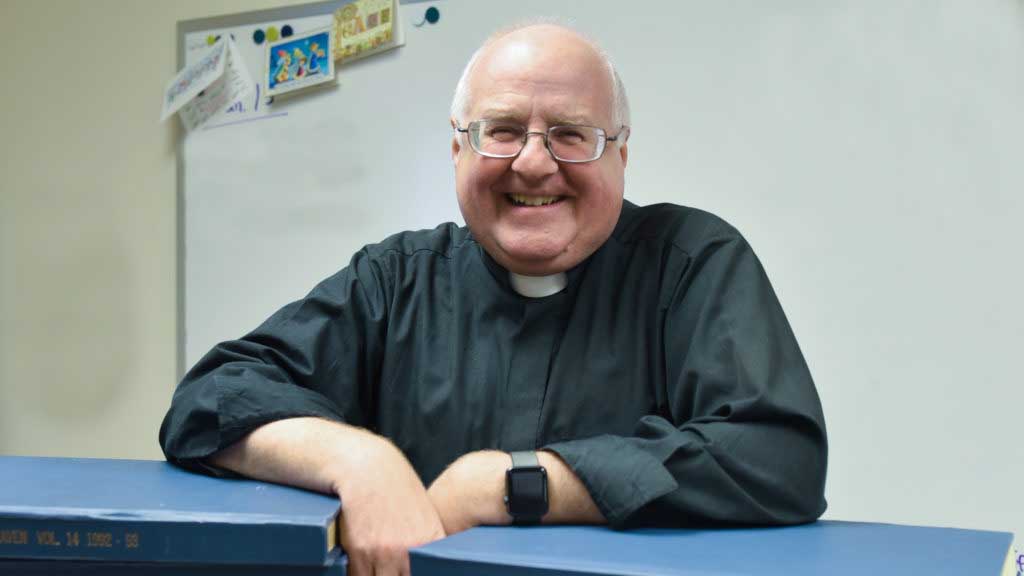
by Father Mark Goldasich
Those four eerie notes — the theme from “The Twilight Zone” — never fail to trigger a response. As a kid, they made me want to cover both my eyes and my ears because the show scared me to no end. As an adult, though, watching reruns of the show reveals a much deeper message in many of its episodes.
One was called “The Man in the Bottle” and aired originally on Oct. 7, 1960. The story centers around the Castles who operate a failing antiques shop. One day, a poor, elderly woman brings in a wine bottle that she found in the trash. Out of pity, Arthur, the owner, gives her a dollar for it.
When he knocks the bottle open later, out pops a genie who gives the couple not the traditional three, but four wishes. As a test, Arthur uses the first wish to repair the broken glass on the front of a display case in the store. Zap, it’s done!
Knowing now that the genie’s promises are real, Arthur and his wife Edna wish for a million dollars. Zap, the shop is filled with money that they start to give away . . . until an IRS agent comes on the scene to collect taxes, leaving the couple with just $5 in the end. Thinking long and hard, Arthur then comes up with his third wish: to be a leader with great power, of a modern country, who can’t be voted out of office. Zap! Arthur is turned into Adolph Hitler in the final days of World War II, hunkering in a bunker holding a vial of cyanide to commit suicide. Horrified, Arthur shatters the vial on the floor and uses his last wish to return to his old life.
Zap, wish granted. Back in his shop, Arthur is seen sweeping up the shards of the shattered “genie bottle.” As he pushes the broom back, its handle cracks the recently restored glass on the display case. The final scene shows Arthur tossing the broken bottle pieces in the trash . . . where the bottle magically repairs itself, waiting for the next person to free the genie.
(Cue those four eerie notes.)
It’s a very thought-provoking episode, showing that what many people wish for — like power and money — always come with strings attached. Just as sin has consequences, so too do wishes. Being content with what we have is usually the much wiser course.
On a more spiritual note, there’s another story about a young widow who gave birth to a son shortly after her husband’s death. At a baby shower, in addition to the usual gifts, an old man by the name of Doc Burns offers the woman one wish for her son Victor. The only condition was that she’d have to decide before the child’s baptism the following Sunday.
After much pondering, she says, “I wish that everyone in the world will love my Victor.”
And thus, it was. Victor grew up adored and pampered, leading to a life with no boundaries. There was no vice he was a stranger to. Feeling empty and lost, he decides eventually to end his life.
At that point, Doc Burns tells Victor that he can make a new wish. Victor immediately says, “Take away the old wish and replace it with this: Rather than being loved by everyone, I wish to love everyone.”
And thus, it happened: Victor became much beloved because of his love for others. (Story adapted from William Bausch’s “A World of Stories for Preachers and Teachers.”)
Which of these two stories do you most relate to? Do you spend your life in the pursuit of power, fame, possessions, approval or admiration?
Or do you dare to wish to be more like Jesus?
(Cue those four eerie notes.)

